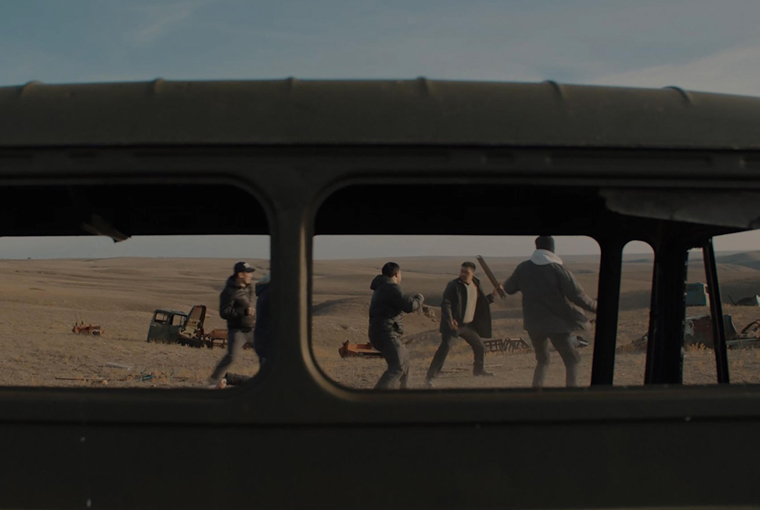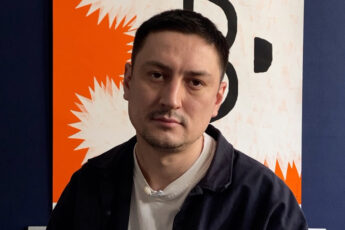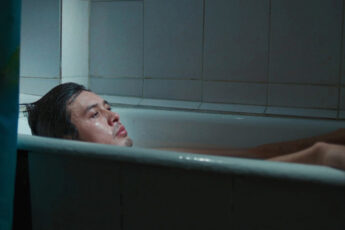A Hybrid Crime
Adilkhan Yerzhanov’s A Dark-Dark Man (2019)
Vol. 102 (February 2020) by Anastasia Eleftheriou
Director Adilkhan Yerzhanov started off his career with a refreshingly absurdist cinematographic style. In his early films, such as Constructors (2013) and The Owners (2014), Yerzhanov’s modernist approach to narrative, defined by self-consciousness and irony, broke with the naturalistic norms of European art-house cinema. The films presented its viewers with the kind of tongue-in-cheek experimentation reminiscent of the New Wave directors of Czechoslovakia (and perhaps also of the Greek Weird Wave). Constructors, a story of three siblings who get kicked out of their flat because they can no longer pay their rent, shunned psychological realism to concentrate on the powerlessness of law and the absurdity of property rights. These satirical elements, while not entirely absent, nevertheless make sway for more verisimilitude in Yerzhanov’s A Dark-Dark Man, which premiered at the San Sebastian film festival in 2019.
In a village in Kazakhstan, Bekzat (Daniar Alshinov), a novice detective, is asked by his superior to close one more routine murder case. The victim is an orphan child, and in the absence of a real culprit Bekzat needs to provide a fake one. He finds a young misfit boy named Pekuar (Teoman Khos) with a slight mental disorder to play the role. Corruption within the police department is portrayed as routine, but it also reflects the modus operandi of an entire local society in which bribery and passivity appear to uphold social peace. For this murder, however, a young journalist named Ariana (Dinara Baktybaeva) is sent from Moscow. Ariana is determined to investigate the murder, which she considers to be connected with a series of other murders of young orphans that have recently taken place in the area. As the story evolves, the mechanisms of corruption and bribery are revealed to be protecting higher positioned people. Bekzat has to spend a lot of time with the young journalist, who puts pressure on him to do his job the proper way. As they wander around in the cornfields or the isolated landscape of Kazakhstan’s countryside, they are accompanied by Pekuar and his friends, some local raggedy children. Bekzat starts developing Romantic feelings for Ariana, and their relationship confronts him with the nature of his actions and leads him to the verge of moral and existential frustration. On top of being forced to do his job right, he will now have to protect her as well.
In A Dark-Dark Man, a film that’s loosely reminiscent of Ceylan’s Once Upon a Time in Anatolia (although less Dostoevskyan), of Bong Joon-ho’s Memories of Murder, or even of Mother, Yerzhanov seems less confident in his attempt to break away from the genre traditions of the mystery film. While maintaining some of the unique modernist elements of his earlier film (the 1980s music score, the magical presence, the silence of the two raggedy kids, a few jokes here and there), A Dark-Dark Man reverts to a more realist art-house tradition: slow pace and non-action, wide semi-theatrical shots, landscapes reflecting the characters’ psychology, few dialogues, etc. This provides for a somewhat confusing mix of styles: scenes of realism (violence, observation in wide shots, long sequences without any action) are followed by sequences of magic realism (the raggedy kids running in the fields) as well as rare moments of absurdist humor (before trying to kill the protagonist, the mafia decides to tell a joke).
Without a doubt, combining different cinematographic traditions could engender a coherent new form of expression. However, the hybrid styles of A Dark-Dark Man convey the impression of stylistic undecidedness more than of a discovery of something as yet unseen. While Yerzhanov has evolved into an experienced director, A Dark-Dark Man being his seventh feature, he still appears to experiment with style like an apprentice.



Leave a Comment